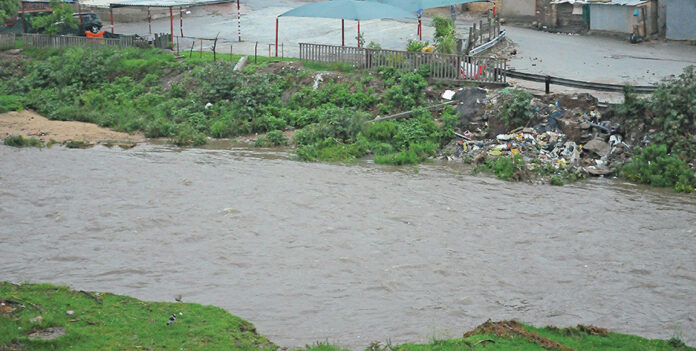South Africa’s small and secondary towns – once engines of industrial vitality – are quietly collapsing under the weight of de-industrialisation.
Places like Lichtenburg in North West, Komati in Mpumalanga, and Newcastle in KwaZulu-Natal (anchored by ArcelorMittal SA) stand as living laboratories of how industrial erosion translates into systemic social and economic decay.
Their stories reveal both the anatomy of collapse and the urgent task of constructing an architecture of renewal.
From the mid-20th century, state-led industrialisation and import substitution policies created a geographically distributed manufacturing ecosystem linking rural production to national and global value chains. Secondary towns emerged as vital nodes of industrial intermediation, sustaining livelihoods and stabilising regional economies.
During the “Golden Age” of South African industrialisation (late 1930s to mid-1960s), manufacturing value-added reached 22%–24% of GDP, contributing to a peak of GDP growth of 7.6% in 1964. Yet, since the 1980s, this ecosystem has been dismantled through trade liberalisation, global competition, technological change and governance failures at the local level.
The state retreated from industrial coordination just as global market pressures intensified, leaving towns dangerously dependent on single anchor firms. Today, manufacturing accounts for only 12.8%–13% of GDP, reflecting a long-term decline.
De-industrialisation is not abstract; it is a lived reality. Lichtenburg’s economy imploded after Clover SA left in June 2021, the decommissioning of Komati power station in 2022 shattered livelihoods, and Newcastle faced major retrenchments as ArcelorMittal scaled back operations.
In each case, the collapse of a single employer triggered cascading effects: informalisation, outmigration, fiscal distress and social fragmentation.
The loss of industrial anchors unravels the social fabric itself.
Where governance capacity collapses, companies exit, skills decay, and communities lose their ability to coordinate recovery.
Many towns are trapped in a “peripheralisation loop” – a self-reinforcing cycle of economic contraction, institutional decay and social disempowerment.
The district development model seeks to break this loop by aligning planning, budgeting and implementation across government spheres. Yet the gap between national industrial frameworks, such as the Department of Trade, Industry and Competition’s sectoral master plans and municipal realities remains vast. National frameworks assume stability, infrastructure reliability and administrative competence.
Towns like Lichtenburg and Newcastle operate amid crumbling infrastructure, fiscal distress and hollowed-out administrations. Bridging this gap requires reimagining industrial policy through a place-based lens: building resilience from the ground up, not top down.
Resilience cannot be captured by economic metrics alone. It must include social adaptation – the capacity to absorb, adapt and transform under constraint.
In Lichtenburg, Komati and Newcastle, emergent self-organisation – informal enterprise, cooperative farming, and solidarity networks – reveals latent capacities. Yet, these remain trapped at a survivalist level.
Transformative resilience requires shifting from coping to renewal: rebuilding industrial commons, reinvesting in human capital and restoring the legitimacy of local institutions.
Global parallels reinforce this insight. Ludhiana (India), Ciudad Sahagún (Mexico), and Volta Redonda (Brazil) suffered industrial decline linked to over-dependence on single employers and infrastructure neglect.
Recoveries were driven by cluster regeneration, public-private partnerships and targeted skills reinvestment. Protecting remaining anchor firms is critical, alongside revitalising technical and vocational training.
At the de-industrialisation symposium in Heidelberg on October 15, these issues moved to the centre of public discourse.
Co-hosted by the Lesedi Black Business Forum and the South African Chamber of Commerce and Industry, and building on a Frontline Africa Advisory research paper, the symposium generated a shared national understanding of both the scale of the problem and the ingredients for renewal.
The mayor of Lesedi Municipality Mluleki Nkosi, emphasised that local government cannot wait passively for national rescue. Lesedi has already rehabilitated critical road corridors serving industrial sites, streamlined local investment approvals, and revitalised small business support programmes in partnership with provincial agencies.
The municipality is piloting an Industrial Revitalisation Forum, aligning firms, educational institutions and civil society with local business needs.
Representing the Gauteng premier’s office, Dumisani Dakile said, “We must build and grow an economy that creates jobs, attracts investment and leverages infrastructure for shared growth.”
• Somhlaba is a political economist and head of research and political risk advisory at Frontline Africa Advisory, based in Pretoria



